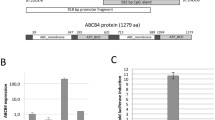Abstract
Down-regulation of the E-cadherin-mediated cell adhesion system is strongly related to cancer invasion and metastasis. Aberrant CpG hypermethylation in the promoter region of the E-cadherin gene has been shown to be responsible for reduction of E-cadherin expression. The present study was designed to test the hypothesis that the demethylating agent 5-aza-2′-deoxycytidine (AZA) can restore the E-cadherin system and reduce the potential for metastasis. AZA treatment modified the methylation status of the 5′ CpG island in the E-cadherin promoter, and induced re-expression of E-cadherin in human cancer cells whose E-cadherin expression had been silenced. The re-expressed E-cadherin was correlated with increased in vitro aggregation and reduced motility. After inoculation of cancer cells (MDA-MB-435S) into the mammary fat pads of mice with severe combined immunodeficiency, the mice were treated for nine consecutive weeks with AZA three times per week i.p. The AZA treatment suppressed both growth of the primary tumor and lung metastasis in comparison with untreated controls, suggesting that the suppression of metastasis may be, at least partly, attributable to restoration of E-cadherin expression. Therefore, inhibition of DNA methylation may be useful for preventing cancer metastasis.
Similar content being viewed by others
References
Takeichi M. Cadherin cell adhesion receptors as a morphogenetic regulator.Science 1991; 251: 1451–5.
Hirohashi S. Inactivation of the E-cadherin-mediated cell adhesion system in human cancers. Am J Pathol 1998;153: 333–9.
Nojima D, Nakajima K, Li LC et al. CpG methylation of promoter region inactivates E-cadherin gene in renal cell carcinoma. Mol Carcinog 2001; 32: 19–27.
Kanai Y, Ushijima S, Hui AM et al. The E-cadherin gene is silenced by CpG methylation in human hepatocellular carcinomas.Int J Cancer 1997; 71: 355–9.
Hiraguri S, Godfrey T, Nakamura H et al. Mechanisms of inactivation of E-cadherin in breast cancer cell lines.Cancer Res 1998;58: 1972–7.
Li LC, Zhao H, Nakajima K et al.Methylation of the E-cadherin gene promoter correlates with progression of prostate cancer. J Urol 2001; 166: 705–9.
Juttermann R, Li E, Jaenisch R. Toxicity of 5-aza-2′-deoxycytidine to mammalian cells is mediated primarily by covalent trapping of DNA methyltransferase rather than DNA demethylation. Proc Natl Acad Sci USA 1994; 91: 11797–801.
Herman JG, Merlo A, Mao L et al. Inactivation of the CDKN2/p16/MTS1 gene is frequently associated with aberrant DNA methylation in all common human cancers.Cancer Res 1995; 55: 4525–30.
Otterson GA, Khleif SN, Chen Wet al. CDKN2 gene silencing in lung cancer by DNA hypermethylation and kinetics of p16INK4 protein induction by 5-aza 2′deoxycytidine.Oncogene 1995; 11: 1211–6.
Kanai Y, Ushijima S, Saito Y et al.mRNA expression of genes altered by 5-azacytidine treatment in cancer cell lines is associated with clinicopathological parameters of human cancers.J Cancer Res Clin Oncol 2001;127: 697–706.
Yoshiura K, Kanai Y, Ochiai A et al. Silencing of the E-cadherin invasion-suppressor gene by CpG methylation in human carcinomas.Proc Natl Acad Sci USA 1995; 92: 7416–9.
Yanagihara K, Ito A, Toge T et al. Antiproliferative effects of iso-flavones on human cancer cell lines established from the gastrointestinal tract.Cancer Res 1993; 53: 5815–21.
Hirohashi S, Shimosato Y, Kameya T et al.Production of alphafetoprotein and normal serum proteins by xenotransplanted human hepatomas in relation to their growth and morphology. Cancer Res 1979;39:1819–28.
Herman JG, Graff JR, Myohanen S et al. Methylation-specific PCR: A novel PCR assay for methylation status of CpG islands. Proc Natl Acad Sci USA 1996; 93: 9821–6.
Nam JS, Ino Y, Sakamoto M et al. Src family kinase inhibitor PP2 restores the E-cadherin/catenin cell adhesion system in human cancer cells and reduces cancer metastasis. Clin Cancer Res 2002; 8:2430–6.
Shimoyama Y, Hirohashi S, Hirano S et al. Cadherin cell-adhesion molecules in human epithelial tissues and carcinomas. Cancer Res 1989; 49: 2128–33.
Shimoyama Y, Nagafuchi A, Fujita S et al. Cadherin dysfunction in a human cancer cell line: Possible involvement of loss of alpha-catenin expression in reduced cell-cell adhesiveness. Cancer Res 1992; 52: 5770–4.
Price JE, Polyzos A, Zhang RD et al. Tumorigenicity and metastasis of human breast carcinoma cell lines in nude mice. Cancer Res 1990; 50: 717–21.
Yasui N, Sakamoto M, Ochiai A et al. Tumor growth and metastasis of human colorectal cancer cell lines in SCID mice resemble clinical metastatic behaviors.Invas Metast 1997; 17: 259–69.
Behrens J, Mareel MM, Van Roy FM et al. Dissecting tumor cell invasion: Epithelial cells acquire invasive properties after the loss of uvomorulin-mediated cell-cell adhesion.J Cell Biol 1989;108: 2435–47.
Chen WC, Obrink B. Cell-cell contacts mediated by E-cadherin (uvomorulin) restrict invasive behavior of L-cells. J Cell Biol 1991; 114: 319–27.
Oka H, Shiozaki H, Kobayashi K et al. Expression of E-cadherin cell adhesion molecules in human breast cancer tissues and its relationship to metastasis.Cancer Res 1993; 53: 1696–701.
Mbalaviele G, Dunstan CR, Sasaki A et al. E-cadherin expression in human breast cancer cells suppresses the development of osteolytic bone metastases in an experimental metastasis model. Cancer Res 1996; 56: 4063–70.
Hirohashi S. Molecular aspects of adhesion-epigenetic mechanisms for inactivation of the E-Cadherin-mediated cell adhesion system in cancers. Verh Dtsch Ges Pathol2000; 84: 28–32.
Takeichi M. Cadherins in cancer: Implications for invasion and metastasis. Curr Opin Cell Biol 1993; 5: 806–11.
Shin JY, Kim HS, Park J et al. Mechanism for inactivation of the KIP family cyclin-dependent kinase inhibitor genes in gastric cancer cells. Cancer Res 2000; 60:262–5.
Bender CM, Gonzalgo ML, Gonzales FA et al. Roles of cell division and gene transcription in the methylation of CpG islands. Mol Cell Biol 1999; 19: 6690–8.
Christman JK.5-Azacytidine and 5-aza-2′-deoxycytidine as inhibitors of DNA methylation: Mechanistic studies and their implications for cancer therapy.Oncogene 2002; 21: 5483–95.
Author information
Authors and Affiliations
Corresponding author
Rights and permissions
About this article
Cite this article
Nam, JS., Ino, Y., Kanai, Y. et al. 5-Aza-2′-deoxycytidine restores the E-cadherin system in E-cadherin-silenced cancer cells and reduces cancer metastasis. Clin Exp Metastasis 21, 49–56 (2004). https://doi.org/10.1023/B:CLIN.0000017180.19881.c1
Issue Date:
DOI: https://doi.org/10.1023/B:CLIN.0000017180.19881.c1




